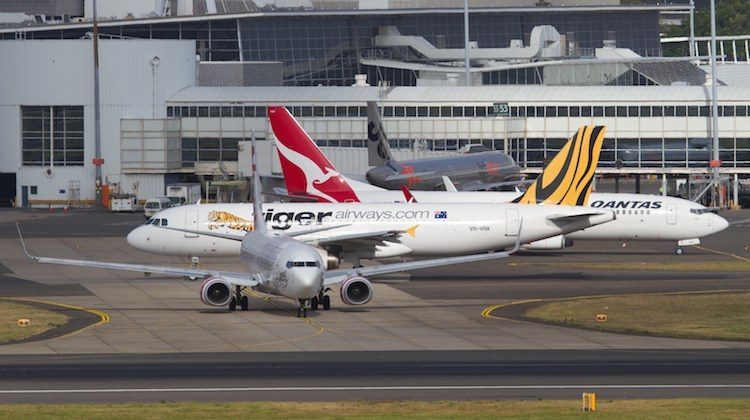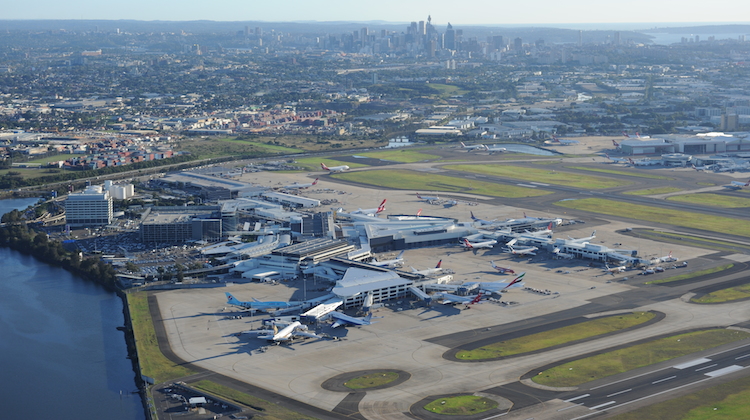
The International Air Transport Association (IATA) says the Productivity Commission’s (PC) draft report into the economic regulation of the nation’s airports reached its conclusions without a balanced assessment of the evidence.
IATA, whose 290 airline members represent 82 per cent of global air traffic, has lodged its response to the PC’s draft report that found the existing regulation of airports benefitted the community and remained fit for purpose.
Published in February, the PC draft report concluded that although Australia’s largest airports – Brisbane, Melbourne, Perth and Sydney, which are subjected to monitoring by the Australian Competition and Consumer Commission (ACCC) – had market power, they had not systematically exercised their market power to the detriment of the community.
As a consequence, there was no need to introduce a compulsory arbitration scheme to resolve disputes between the airlines and airports when the parties could not reach agreement on a pricing regime during negotiations, something the airlines have been pushing for.
IATA said it was “surprised and concerned” at the conclusion airports had not systematically exercised market power and that the existing regulatory framework was sufficient.
Further, the IATA said in its submission it was unable to verify that its own evidence, as well as that of other stakeholders, had been considered in a balanced manner with the counter evidence presented from airports.
“Most importantly, we identify shortfalls in the analysis and approach taken by the PC to reach its conclusion,” the IATA submission said.
“We respectfully encourage further assessment and for a more balanced accord of the evidence presented.”
The PC draft report said the proposed negotiate-arbitrate framework would have few benefits and many risks.
“There is no doubt that some commercial negotiations between airports and airlines have been challenging but, on balance, the process and the outcomes reached give little cause for concern,” the draft report said.
IATA area manager for south west Pacific Matteo Zanarini said the PC should “revisit its assessment methodology in reaching its conclusion”.
“Specifically there are areas where the PC should take a broader look at the performance of airports and explain on the criteria used to determine whether airports have exercised market power,” Zanarini told the PC in public hearings.
Meanwhile, IATA said the PC ignored airline comments regarding a lack of airport capital investment transparency and the need for regulation to require airports to provide information on the need for investment.
The submission also said the PC made a “fundamental mistake” in assuming airlines were unwilling to engage with airports on a community wide basis to discuss passenger and operational needs.
“In fact, just the opposite is true,” IATA said.
“It is genuinely perplexing the PC can come to its conclusions without thoroughly investigating the root cause of the issues, that points to a disregard of its duties in the consumer’s interest and willingness to reward airports failures.
“The PC seems unwilling to take airlines and their associations comments seriously. That is extremely disappointing considering the significant issues airlines face when trying to engage meaningfully with airports.”
Lobby group Airlines for Australia and New Zealand (A4ANZ) has also called for the PC to revisit its conclusions.

PC commissioner Paul Lindwall has defended the draft report.
“The mere fact that an airport has market power is insufficient to justify more heavy-handed regulation,” Lindwall said in a speech to an Infrastructure Partnerships Australia Industry event on March 19, according to a transcript published on the PC website.
“To increase regulation, we would need to find that the airport was using that market power in a way that resulted in harm to the community.”
The Australian Airports Association (AAA) said the existing regulatory arrangements was delivering positive outcomes for the community and industry.
The AAA noted it was the sixth time the PC had rejected calls for an industry-specific arbitration of access to airports.
“The evidence clearly shows that the current system is working,” AAA chief economist Warren Mundy said in a statement on March 28.
“We have a healthy, vibrant aviation sector that is best-placed to deliver improved outcomes for customers, the community and the national economy.”




